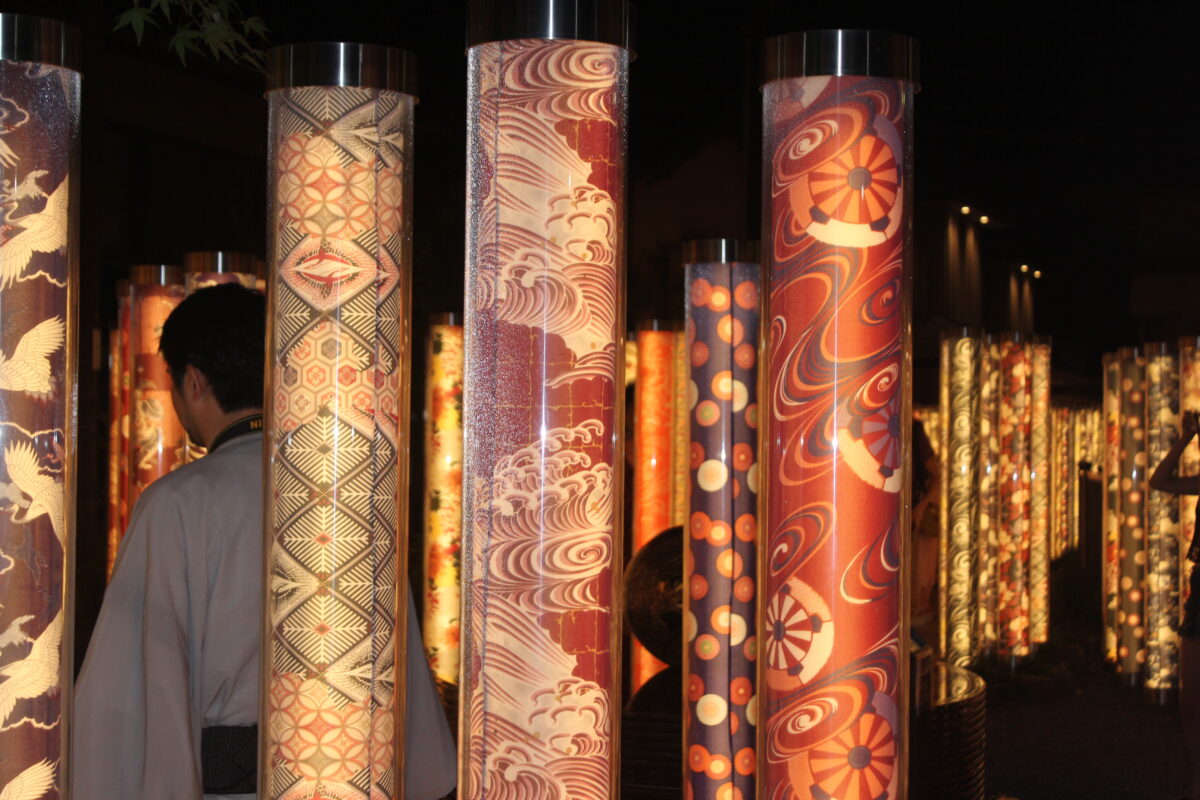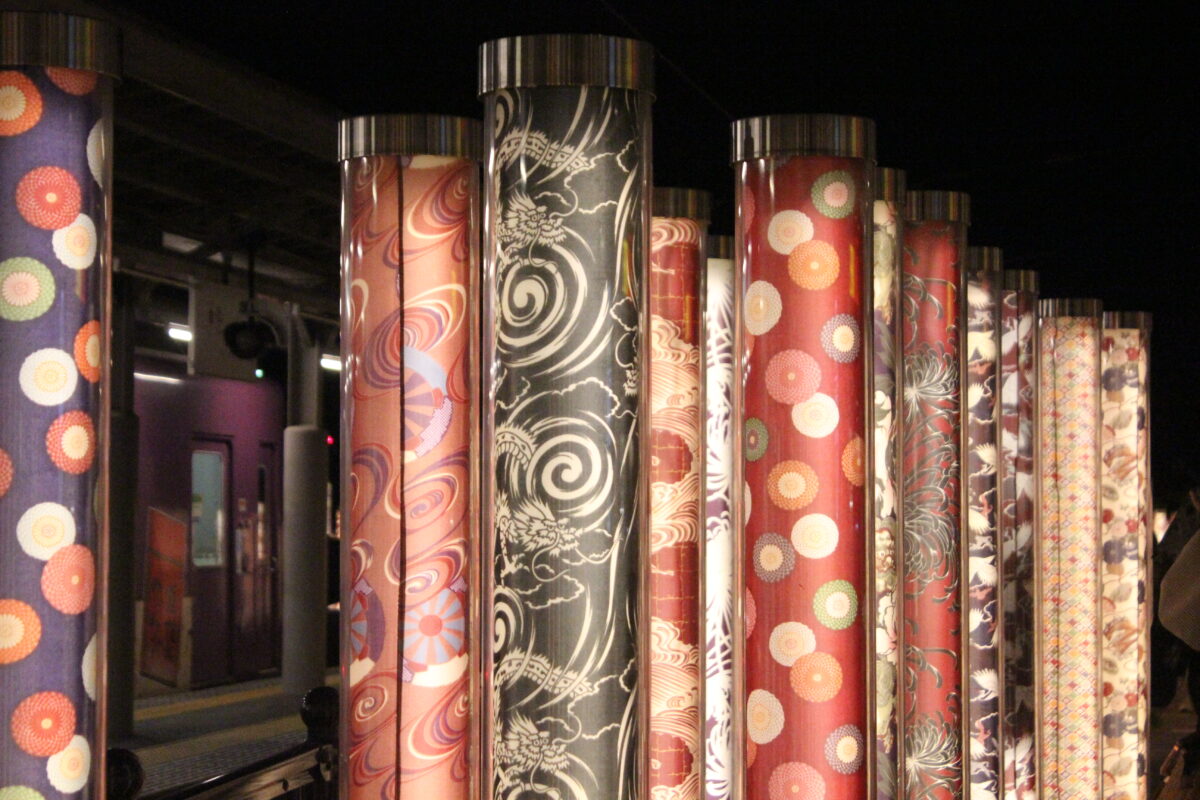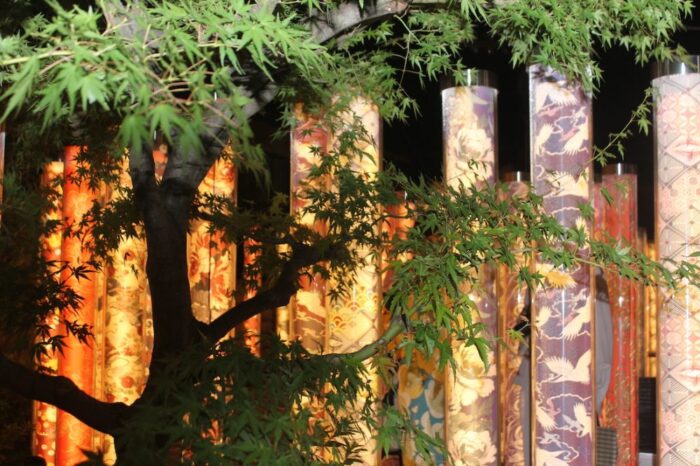In Kyoto, it is very common to see people dressed in the traditional clothes of Japan, the kimono. There is even a rather peculiar place that honors the designs of this beautiful garment. This place is known as Kimono Forest. It is a must-see promenade for people heading to the bamboo forest, located in the Arashiyama area. The Kimonos Forest is located at Randen Arashiyama Station, which is right next to the main street of Arashiyama, near the UNESCO World Heritage Site Tenryu-Ji Temple.


Pillars of the Kimono Forest
A wonderful surprise awaits visitors who bother to explore what it has to offer. Inside the station, bright cylindrical pillars in a variety of colors and patterns are placed in rows. Looking like a forest, you make your way through a dreamlike, fantasy land. The pillars are made with dyed fabric using the traditional Kyo-Yuzen technique. This is a dyeing and printing style used to create the brightly colored Kimono Yuzen in Kyoto.
Around 600 pillars make up the Kimono Forest, creating an impressive and fascinating view in the station. Visiting the Forest is free of charge. It aims to be a small town to enjoy day or night, with walking trails, small parks, kiosks. And there is even a spa to soak and rest your feet after long walks.
It also houses the Dragon Pond, named after the Tenryu-Ji Dragon Temple, which serves as the guardian of the station so everyone will have a safe trip.
At nightfall, the LED lights installed on each of the pillars illuminate the beautiful Kimono Forest, making this walk even more impressive, creating a journey of indescribable beauty.
Your Japan Tour
As seasoned Japan experts, we create perfect Japan package tours including destinations like Kyoto. Check out our group tours and private tours, or contact us to start planning your unforgettable holiday to this fascinating country. Japan is full of once-in-a-lifetime experiences, culture, history, nature, and delicious food!
